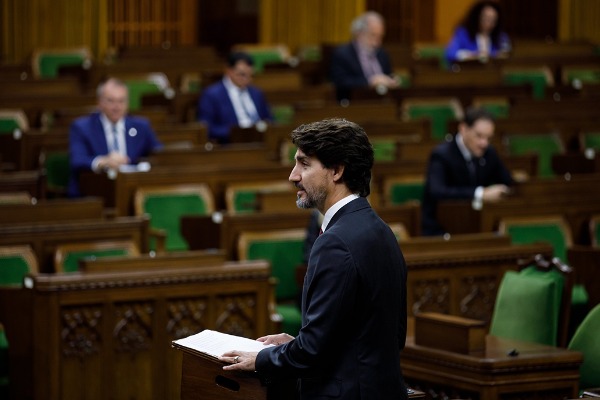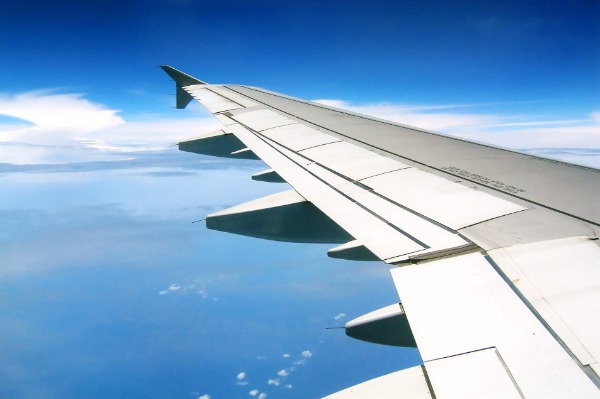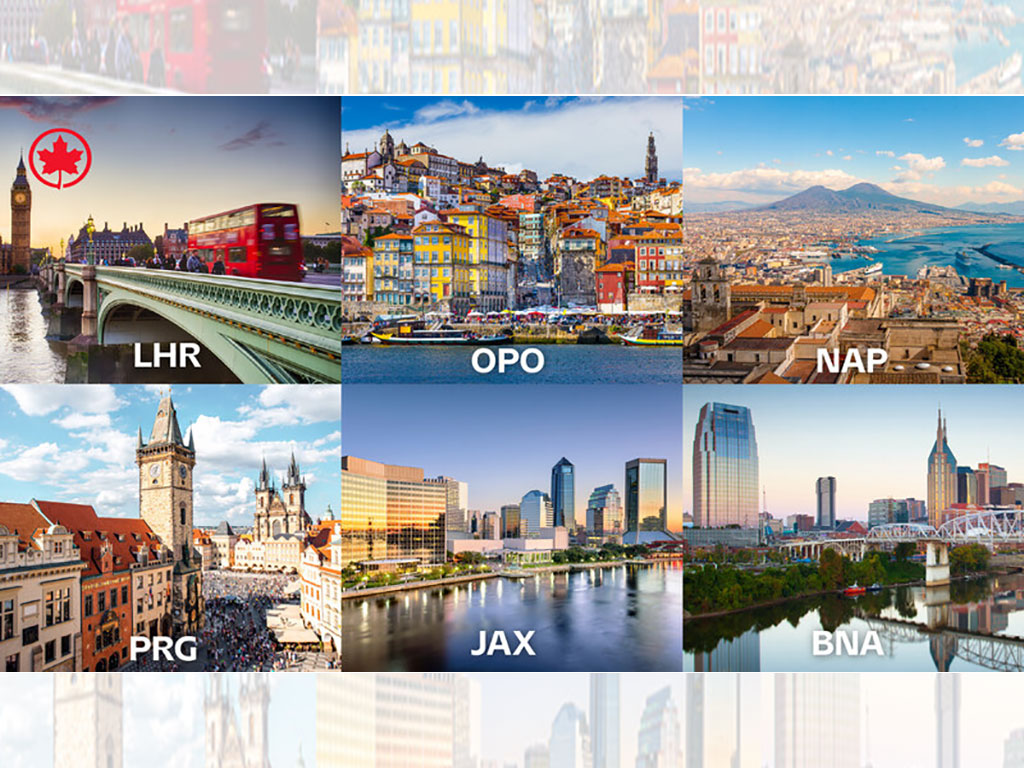UPDATE: Standardized PoV, More Support Announced

Canada now has a standardized proof of vaccination.
Details of it were announced by Prime Minister Justin Trudeau yesterday (Oct 21), who explained that — in collaboration with provinces and territories — a standardized Canadian COVID-19 proof of vaccination is now available to residents of Newfoundland and Labrador, Northwest Territories, Nova Scotia, Nunavut, Ontario, Quebec, Saskatchewan, and Yukon, and will be available in the other provinces soon.
The Prime Minister also said that Canada is engaging with international partners to obtain recognition and acceptance abroad, so the proof can also be used to facilitate travel around the world.
He explained that the Canadian COVID-19 proof of vaccination provides Canadians a reliable and secure way to demonstrate their COVID-19 vaccination history, both in Canada and abroad.
It is issued by provinces and territories to individuals who are vaccinated and registered with their provincial or territorial health authority.
The proof of vaccination can also be used with ArriveCAN, the mobile app and website for travellers to submit mandatory information when arriving in Canada from other countries.
The Prime Minister indicated that this standardized proof will support Canada’s new traveller vaccination requirements that will come into effect on Oct. 30, 2021.
Travellers can continue to use their provincial proof of vaccination for domestic or international travel if their province is not yet issuing the standardized proof of vaccination.
The Oct. 21 announcement is part of the five vaccination commitments that the Canadian government will implement in the first 100 days of its new mandate.
Over 83% of eligible Canadians are fully vaccinated against COVID-19, but the fight against the virus continues.
The Prime Minister said: “Canadians have done their part by getting vaccinated against COVID-19 to protect themselves, their families, and their communities. As new vaccine requirements roll out for travellers, we are working to ensure that those who travel have access to a reliable, secure way to demonstrate their COVID-19 vaccinations, both at home and abroad.”
And he added: “We will continue to work with provincial, territorial, and Indigenous partners so this standardized proof is available across Canada.”
Marco Mendicino, Minister of Immigration, Refugees and Citizenship, said that: “Thanks to the ongoing collaboration and partnership with provinces and territories, the majority of Canadians will have access to a COVID-19 proof of vaccination they can use to travel. We are laying the groundwork now, so Canadians will have a more predictable travel experience overseas when borders fully re-open.”
Dominic LeBlanc, President of the Queen’s Privy Council for Canada and Minister of Intergovernmental Affairs, pointed out that: “Vaccines are the best way to protect people from COVID-19 and end this pandemic. A standard proof of vaccination will further enable fully vaccinated Canadians to safely resume some of the pre-pandemic activities they enjoy. Our government will continue to work with provinces and territories to help Canadians from coast to coast to coast navigate this pandemic and keep each other safe.”
Hardest Hit Coalition Applauds New Support Program
The Coalition of Hardest Hit Businesses is praising the new targeted support measures for businesses that are still facing significant pandemic-related challenges, including the Tourism and Hospitality Recovery Program and the Hardest-Hit Business Recovery Program, that were announced by the Trudeau government on Oct. 21.
The group is also applauding the announcement on the new international vaccine passport. These new initiatives will help support our hard-hit sector through the winter period, prioritizing job creation and a strong recovery of the travel economy.

Beth Potter, president and CEO of the Tourism Industry Association of Canada (TIAC), said: “The federal government had Canadians’ backs throughout the pandemic. Today, the government delivered on its election promise to provide the tourism, hotel, and events businesses the help they need to survive, and to continue to maintain the highest levels of employment possible.”
Susie Grynol, president and CEO of the Hotel Association of Canada (HAC), pointed out that: “The tourism industry is the hardest hit industry. Even as the economy reopens, business and international travel will take time to recover. The new programs announced today will help our members stay alive through a difficult winter until our expected recovery in the spring.”
The tourism, hotel, and events sectors are unique:
- Most global tourists visit Canada only in the summer. This international summer season was missed due to border restrictions
- We have entered the off-season where domestic travel slows and Canadians travel south
- Mass gathering restrictions mean that large events – festivals, conferences, live music – are prevented from operating
- Key messages from government that “now is not the time to travel” are still in effect
- Work from home has resulted in limited business travel
Without continued support, many tourism, hotel and event businesses would have closed permanently, making temporary job losses permanent. This would have had a significant negative impact not only on the tourism industry, but Canada’s broader economic recovery overall.
The Coalition concluded that the announcement “gives our industry hope as we work hard to achieve full recovery from the effects of the pandemic.”
ACTA Welcomes New Program
Reacting to the Oct. 21 announcement, ACTA president, Wendy Paradis said: “This new program will support the survival of thousands of Canadian travel agencies, who are among the hardest-hit businesses in the pandemic. We are pleased that the Deputy Prime Minister directly referenced travel agencies in her announcement. This speaks to the tremendous and aggressive advocacy efforts of ACTA, travel agents, and our partners.”
ACTA’s president continued: “Further, we are working to understand how Independent Travel Agents fit into this new program. The Deputy Prime Minister said employers and businesses are included, so we are strongly urging the federal government to include these small businesses.”

The program will replace the current wage and rent subsidies, expiring this Saturday, October 23. The Tourism and Hospitality Recovery Program starts Oct. 24 and ends May 7, 2022.
The Deputy Prime Minister further announced that the Canada Recovery Benefit also ends this Saturday, replaced by the Canada Worker Lockdown Benefit on Oct. 24. This program provides $300 a week in income support to eligible workers who are unable to work due to government-imposed public health lockdowns, until May 7, 2022.
It is unclear if Independent Travel Agents qualify for the Canada Worker Lockdown Benefit, and ACTA is seeking clarification and asserts that government consider travel advisories and border restrictions as a qualifying lockdown for travel agent entrepreneurs.
Paradis noted that: “The Tourism and Hospitality Recovery Program provides strong support to eligible businesses, and in addition to modernizing travel advisories and border restrictions, is a critical part of our sector’s recovery.”
It is also unclear, at this time, if Independent Travel Agents qualify under this program. ACTA is advocating with the government at the highest levels for their inclusion in the Tourism and Hospitality Recovery Program.
Effective Oct. 23, the Canada Recovery Benefit will end, replaced by the Canada Worker Lockdown Benefit on October 24. This program will provide up to $300 a week in support for workers whose work interruption is a direct result of a government-imposed public health lockdown.
Said Paradis: “Government travel advisories and restrictions have devasted independent travel agents. With the ending of the CRB, it is critical they are included in the new Canada Worker Lockdown Benefit. Their loss of business is a direct result of government-imposed public health lockdowns, and ACTA will continue our advocacy with the Deputy Prime Minister and the Prime Minister’s Office to ensure they understand the urgent need for continued support to Independent Travel Agents.”
Details on this program are unavailable, and the government says: “further details on this proposed benefit will be released in the coming weeks.”
NACC Backs Initiatives
News of the standardized proof of vaccination system was welcomed by Canada’s major airlines.
Mike McNaney, president and CEO of the National Airlines Council of Canada, observed that: “Since the outset of the pandemic, Canada’s major airlines have been committed to protecting employee and passenger health and fully supported the travel and employee vaccination requirements when first announced by the federal government in August.”
McNaney continued: “We welcome today’s announcement by the Prime Minister that all provinces and territories will be issuing a standardized and digital proof of vaccination that will enable Canadians to securely and quickly demonstrate their vaccination status in order to travel within Canada and abroad. Release of this new “vaccination passport” utilizing the SMART Health Card standard is critical for the effective implementation of the mandatory vaccination mandate. We urge those provinces that have yet to release the new standardized proof of vaccination to do so as quickly as possible.”

NACC’s boss continued: “With aviation becoming one of the only sectors requiring fully vaccinated employees and customers, it is imperative that the government work with us and determine what other travel measures can now be amended in-keeping with global practices, such as elimination of blanket advisories against travel, elimination of mandatory PCR testing pre-departure for fully vaccinated international travellers coming to Canada, and enabling children under 12 to be exempt from de facto home quarantine.”
And McNaney added: “As these new measures are implemented, Canada’s major carriers will maintain their ongoing support for vaccination campaigns, while continuing to invest heavily in the safe restart of travel and tourism in order to drive our national economic recovery in every region of the country.”
Government Details Support Measures
Deputy Prime Minister and Minister of Finance Chrystia Freeland announced that the government is taking targeted action to create jobs and spur economic growth.
This includes moving from the very broad-based support that was appropriate at the height of lockdowns to more targeted measures that will provide help where it is needed, while prudently managing government spending.
The government is proposing the following changes to business support programs:
- Extend the Canada Recovery Hiring Program until May 7, 2022, for eligible employers with current revenue losses above 10 per cent and increase the subsidy rate to 50 per cent. The extension would help businesses continue to hire back workers and to create the additional jobs Canada needs for a full recovery.
Deliver targeted support to businesses that are still facing significant pandemic-related challenges. Support would be available through two streams:
- Tourism and Hospitality Recovery Program, which would provide support through the wage and rent subsidy programs, to hotels, tour operators, travel agencies, and restaurants, with a subsidy rate of up to 75 per cent.
- Hardest-Hit Business Recovery Program, which would provide support through the wage and rent subsidy programs, would support other businesses that have faced deep losses, with a subsidy rate of up to 50 per cent.
- Applicants for these programs will use a new “two-key” eligibility system whereby they will need to demonstrate significant revenue losses over the course of 12 months of the pandemic, as well as revenue losses in the current month.
- Businesses that face temporary new local lockdowns will be eligible for up to the maximum amount of the wage and rent subsidy programs, during the local lockdown, regardless of losses over the course of the pandemic.
- These programs will be available until May 7, 2022, with the proposed subsidy rates available through to March 13, 2022. From March 13, 2022, to May 7, 2022, the subsidy rates will decrease by half.
To ensure that workers continue to have support and that no one is left behind, the government proposes to:
- Extend the Canada Recovery Caregiving Benefit and the Canada Recovery Sickness Benefit until May 7, 2022, and increase the maximum duration of benefits by 2 weeks. This would extend the caregiving benefit from 42 to 44 weeks and the sickness benefit from 4 to 6 weeks.
- Establish the Canada Worker Lockdown Benefit which would provide $300 a week in income support to eligible workers should they be unable to work due to a local lockdown anytime between October 24, 2021 and May 7, 2022.
With these changes, the government is supporting the hardest-hit sectors and those who are affected by the virus while recognizing that broad-based assistance is no longer needed. These changes will continue to prioritize job creation and a strong economic recovery.
Minister Freeland said: “Our economy is rebounding and we are winning the fight against COVID. It is also true, though, that the recovery is uneven and the health measures that are saving lives continue to restrict some economic activity. That is why today we are announcing what we very much hope and believe is the final pivot in delivering the support needed to ensure a robust recovery – for everyone. Our focus is to protect and create jobs. And ensure the strongest possible recovery for everyone. And we will continue to deliver on this promise we have made to Canadians.”


